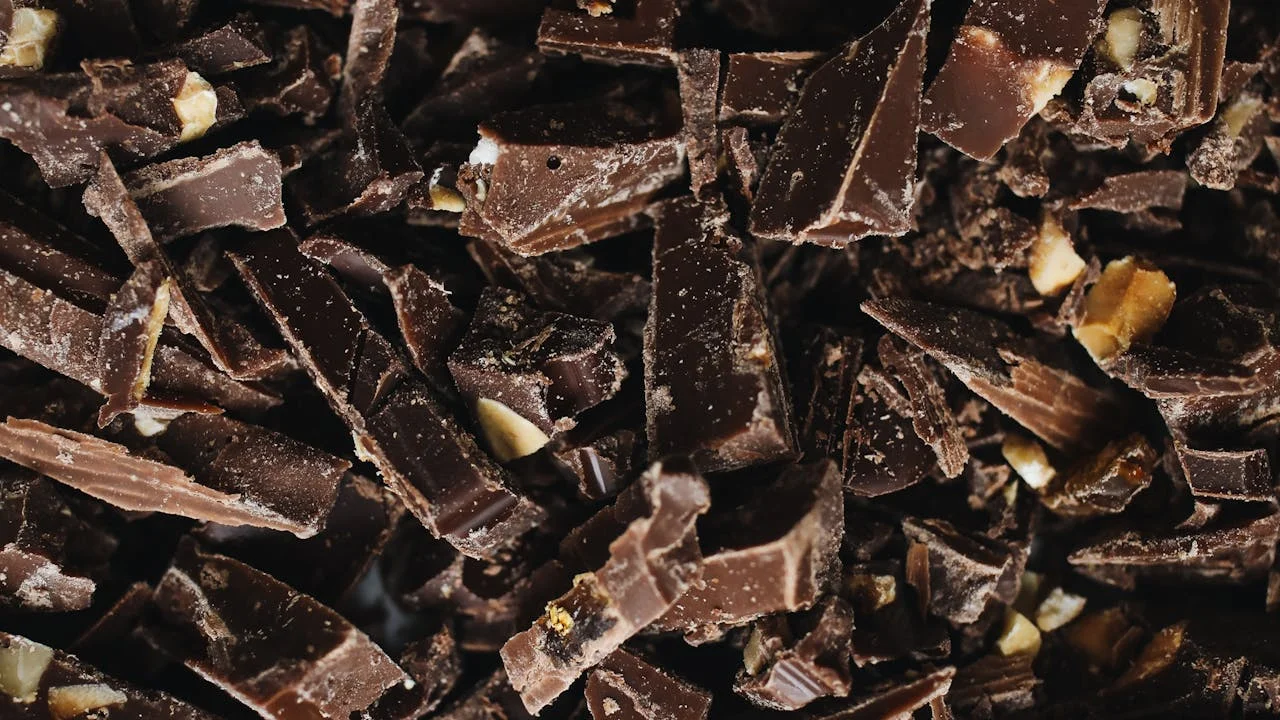Dark chocolate is frequently known for its medical advantages, generally because of its high content of cancer prevention agents and essential supplements. These benefits of consuming dark chocolate can significantly affect health. Despite its fame and positive well-being benefits, these opposing viewpoints are often disregarded. One of the essential worries with dark chocolate is its unhealthy and fat substance. Although it contains valuable fats, such as monounsaturated and polyunsaturated fats, it is likewise rich in soaked fats.
Dark Chocolate is Bad For Health

Read also: Top 5 Foods For Better Sleep.
More utilization of immersed fats can prompt an expansion in low-density lipoprotein (LDL) cholesterol levels, which is a risk factor for cardiovascular illnesses. Besides, the fatty substances can add to weight gain if consumed in enormous amounts, which can expand the risk of medical problems, including type 2 diabetes, hypertension, and metabolic disorders. Excessive sugar admission is related to associated medical conditions, including an expanded risk of cavities, insulin opposition, diabetes, and coronary illness. It contains caffeine and theobromine, which are energizers. While these builds can have helpful impacts with some restraint, excessive intake can prompt adverse effects, for example, anxiety, disturbed sleep, and increased heart rate.
Side Effects Of Dark Chocolate
Weight Gain and Heart Health:
It is calorie-rich, and more consumption can prompt weight gain, adding to weight gain and medical problems like type 2 diabetes, heart attack, and cancer. While it contains beneficial fats, dark chocolate has critical amounts of soaked fats, which can raise LDL (bad) cholesterol levels, possibly increasing the risk of heart disease.
Dental and Sugar problems:
Although it contains less sugar than milk chocolate, it can, in any case, have sufficient sugar to affect glucose levels, expanding the risk of insulin opposition and type 2 diabetes. The sugar in dark chocolate can add to dental issues, including cavities and gum issues.

Caffeine:
It contains caffeine and theobromine, which are energizers. Unnecessary utilization can prompt a sleeping disorder, anxiety, heart rate, and tiredness. People exposed to caffeine might encounter these effects even with moderate utilization.
Allergic Reactions:
A few people might have hypersensitive responses to compounds in dark chocolate, like cocoa, soy lecithin (an emulsifier frequently utilized in chocolate), or nuts that might be available in the item. Certain mixtures in chocolate, like tyramine and phenylethylamine, can set off headaches in powerless people.
Digestive problem:
For people with IBS or other digestive problems, the fat and caffeine content in dark chocolate can fuel side effects, causing distress, bulging, and irregular bowel.
Regular Chocolate or Dark Chocolate
When comparing regular chocolate, ordinarily milk chocolate, with dark chocolate, the decision frequently boils down to individual taste preferences and well-being considerations. Dark chocolate is eminent for its extreme cocoa flavor, which comes from a higher level of cocoa solids, around 70% or more. This higher cocoa content implies that dark chocolate will generally have less sugar and fewer added substances than milk chocolate. Furthermore, dark chocolate flaunts a more powerful, wholesome profile, containing more elevated levels of useful mixtures like flavonoids and antioxidants.

These mixtures have been connected to potential medical advantages, such as further developed heart health, decreased pulse, and diminished irritation. To receive these rewards, picking dark chocolate with negligible added sugars and higher cocoa content is essential. Then again, milk chocolate is adored for its better taste and creamier surface, which is accomplished by mixing cocoa solids with milk solids and sugar. While milk chocolate contains a few antioxidants from cocoa, its medical benefits are its higher sugar and fat substance.
In any case, milk chocolate remains a well-known decision for those looking for a more liberal and sweet-like chocolate experience. Choosing between dark chocolate and milk chocolate reduces individual preferences and dietary contemplations. It might be inclined toward individuals who value its extraordinary cocoa flavor and potential medical benefits, while milk chocolate requests those who partake in a better, creamier taste. Despite the decision, control is vital to getting a charge out of one or the other sort of chocolate as a component of a decent eating routine.
Dark Chocolate After Workout

- Workout stimulates the arrival of endorphins, synapses that advance sensations of health and reduce pressure. It contains intensities like phenylethylamine and theobromine, which might upgrade mood and give a feeling of relaxation post-exercise.
- This chocolate has a high water content, adding to hydration post-workout. Legitimate hydration is critical for supporting muscle capability, managing internal heat levels, and helping with supplement transport and waste evacuation.
- It contains starches, which are sugar and fiber. Consuming carbs after an exercise recharges glycogen stores in muscles, giving a source of energy for future exercises and helping with healing.
- Dark chocolate contains protein, which is important for muscle fixation and recovery after exercise. While it should not be depended upon as an essential source of protein post-exercise, combining it with other protein-rich food varieties can help with muscle recovery.

While dark chocolate can offer specific medical benefits because of its rich antioxidant content and possible cardiovascular benefits, it has drawbacks, especially when consumed in abundance. It is calorie-thick and high in soaked fats, which can increase weight gain and LDL cholesterol levels and risk to heart health. Even lower sugar content than milk chocolate can affect glucose levels and dental wellbeing. Also, It contains caffeine and theobromine, which can prompt adverse consequences, for example, high pulse rate, uneasiness, and anxiety. Worries about expected heavy metal heresy, for example, cadmium and lead, including kidney harm and mental weaknesses.
To get more of our exclusive content on Health Care and Lifestyle. Follow us on YouTube and Instagram.






